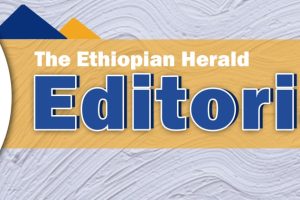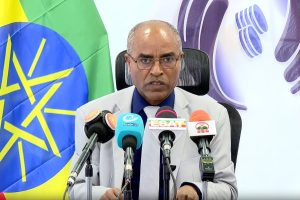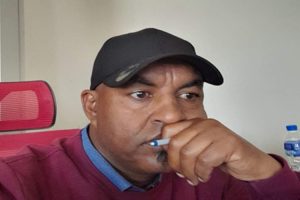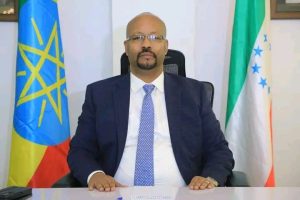
The 26th World Press Freedom Day was celebrated in Ethiopia reinforcing the commitment of the government in its bid to facilitate and consolidate such freedom.
It is the first time that Ethiopia has been allowed to host such an important event by UNESCO and the day was marked in collaboration with the African Union Commission, the Ethiopian Federal Government and of course UNESCO. For the first time in more than ten years there is no journalist behind bars in Ethiopia and the media has benefited from a very open policy that has allowed websites to open and media outlets stationed abroad to open their offices here.
OMN and ESAT could be cited as examples. Banned publications and websites have resumed their work and new ones are founded increasing in number. At the same time, electronic media as well are thriving with the new opportunity.
‘Reporters Without Borders’ has written Ethiopia has made ‘spectacular progress’ improving forty steps in the World Press Freedom Index to 110 among 180 countries of the world. It is a direct result of the fact that no journalist is behind bars and bloggers and foreign based media are allowed to operate here. The progress is appreciated but it must be underlined that there is still ample room for improvement. The Abiy government is hoped it will do more in the coming years especially legislation and technology wise.
The operators in the profession argue there are restrictive laws that need to be eased such as the Press Law and the notorious Anti-terrorism Law. The revision of these legislations will hopefully further facilitate the proper regulation of press freedom so that it will not be abused by unscrupulous mercenaries financed by forces advancing their own agenda.
These days the country is in transition, and there are so many forces that are not comfortable with the changes. This is so because their vested interests are touched and they are seen opening new media outlets including TV stations just to advance their own agenda and not respect the professional ethics of the vocation.
Admitting that political parties and certain organisations do have the right to open up their own party organs or communication offices, this however has nothing to do with the traditional journalism as these are not bodies that are impartial and neutral, standing only for the interests of the public at large. These are bodies that have their own organizational agenda and cannot be judged with the same principles of independent journalism. Activism is one thing and journalism is another.
The boundaries between freedom of expression and acts that are aimed to destabilize the legal order or disseminate unfounded and fake news in order to gain politically cannot be tolerated. It is the government’s duty to curb such means especially when there is no truth in the broadcast or publication. Its main purpose is to create suspicion among communities contributing to the creation of hostilities and clashes among various ethnic and religious groups.
For a country such as Ethiopia, the limits of freedom of expression must be well marked and stated so that no one dares transgress them. The equilibrium and peaceful cohabitation of communities is not to be traded against any sort of freedom of expression.
The 1995 Federal Constitution guarantees freedom of expression in clear and unequivocal terms. Article 29 is the first provision under the Chapter on Democratic Rights: The Right of Thought, Opinion and Expression. It states that everyone has the right to hold opinions without interference.
Everyone has the right to freedom of expression without any interference. This right shall include freedom to seek, receive and impart information and ideas of all kinds, regardless of frontiers, either orally, in writing or in print, in the form of art, or through any media of his choice.
Here is one of the areas where our country needs to improve because not always the media, especially the private media are allowed to have easy access to information that government bodies are required to provide information to the media. This has been a source of complaint by many private media including the alleged selection by the government when it has important events to be covered by the media. They complain that they are forced to report based on public media outlets’ information without having equal access to the sources.
The provision expressly prohibits any form of censorship and in fact there is no censorship in our country. But the clause ‘access to information of public interest’ is the one that is considered the Achilles Heel of the establishment. And here there is need to improve that is admitted by the authorities themselves.
The idea of the need to express a diversity of opinions is another key constitutional provision included in the famous Article 29. The weakness of the public media in this respect has been given a lot of coverage although progress was actually recorded in the past year or so.
The freedom to express one’s views and opinions is however not limitless. There are constitutional limits to it. The provision states ‘these rights can be limited only through laws which are guided by the principle that freedom of expression and information cannot be limited on account of the content or effect of the point of view expressed. Legal limitations can be laid down in order to protect the well-being of the youth, and the honour and reputation of individuals. Any propaganda for war as well as the public expression of opinion intended to injure human dignity shall be prohibited by law. (Emphasis added)
This restriction must be strictly interpreted because many fear that it might be another weapon to shut down media establishments that are not particularly friendly with the government or its policies. In the past, many journalists were incriminated using this provision broadly interpreted in a manner that can facilitate the long arms of the government to discourage free expression and investigative reporting.
‘Any citizen who violates any legal limitations on the exercise of these rights may be held liable under the law.’ This is a provision that is very broad and open for interpretation.
UNESCO says the World Press Freedom Day will give us the occasion to not only celebrate the principles of press freedom but also gauge the state of such freedom in the world at large, besides defending the media from assaults on their independence. It is also an occasion to give due credit to those who are engaged in the trade risking their lives.
UNESCO has decided that this year’s celebration will have the theme: Media for Democracy: Journalism and Elections in Times of Disinformation. The issue of fake news and disinformation has now become a real challenge for the press freedom and governments are seen suffering from it. How can we avoid this pitfall which is all the more dangerous in countries such as Ethiopia where the level of maturity of the population is relatively low and people are tempted to act emotionally when they see certain posting on social media? The abuse of social media is now becoming a real threat to democracy besides the dangers of destabilization and deterioration of law and order.
This is the 26th time that the day is celebrated and this year it is done jointly with the African Union Commission, AUC, and the Ethiopian Government along with UNESCO.
The message is particularly timely for Ethiopia given the imminent election season coming and the key role the media is expected to play. Time and again the government of Ethiopia has been heard stating that democracy is not an option for Ethiopia’s survival first and its progress next, but an imperative.
Only a democratically elected government by the people can guarantee justice, progress and unity. And there are no alternatives to this. That is why we cannot overstate the importance of free press and strong and independent democratic institutions. Addis Ababa will thus proudly host this event and Ethiopians hope to earn the maximum benefit from it.
Despite recent progress mentioned above there are still lots of things to improve by the government in terms of provision of accurate and timely information to the various media freely and not discriminate among outlets. There are still problems in the printing press industry due to lack of the same and the prohibitive price of paper and technological gadgets used to record and disseminate news and views. Frequent breakdown of internet is also mentioned as a challenge.
The road may be rough and long but it can be travelled on smoothly if there is enough understanding on the way we perceive and live this freedom. And the latest efforts of UNESCO, AUC and the Federal Government must keep us with good prospects for the future in this endeavour. And let me end with a quote from UNESCO Director General Audrey Azoulay: Press freedom is the cornerstone of democratic societies. All States, all nations, are strengthened by information, debate and the exchange of opinions. At a time of growing discourse of mistrust and delegitimization of the press and journalism, it is essential that we guarantee freedom of opinion through the free exchange of ideas and information based on factual truths.
The Ethiopian Herald May 04/ 2011
Fitsum Getachew





